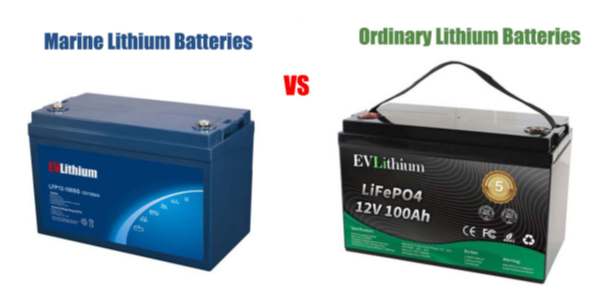The Distinctive Features of Marine Lithium Batteries vs Ordinary Lithium Batteries
The Distinctive Features of Marine Lithium Batteries vs. Ordinary Lithium Batteries

Introduction: Understanding the Basics
In the world of energy storage, lithium batteries have emerged as the go-to solution for various applications. While ordinary lithium batteries are widely used in gadgets, tools, and vehicles, marine lithium batteries are designed specifically for the marine environment. Understanding the differences between these two types of batteries is essential for optimal performance and safety.
Design and Construction
One of the fundamental differences between marine lithium batteries and ordinary lithium batteries lies in their design and construction. Marine batteries typically feature robust, waterproof casings designed to withstand harsh marine conditions including humidity, saltwater exposure, and high vibrations. This resilience enhances their longevity, making them perfect for boats and yachts, where reliability is non-negotiable. In contrast, ordinary lithium batteries are usually constructed for standard indoor use, prioritizing lightweight and compact designs over extreme durability.
Performance and Efficiency
Marine lithium batteries often outperform their ordinary counterparts in terms of efficiency. These specialized batteries are engineered to provide higher discharge rates, essential for powering demanding equipment on boats such as sonar systems, high-performance lights, and electric motors. They also excel in deep cycle applications, allowing for more frequent and deeper discharges without compromising battery life. Ordinary lithium batteries, while capable, generally lack this level of performance when subjected to similar conditions.
Temperature Tolerance
Temperature plays a significant role in battery performance. Marine lithium batteries are engineered to operate efficiently in a broader temperature range, protecting against the extremes encountered at sea. This temperature resilience helps maintain optimal performance, ensuring that the battery functions reliably even in freezing conditions or scorching sunshine. Ordinary lithium batteries have a more limited temperature threshold, which can lead to performance issues when faced with harsh environmental conditions.
_看图王.jpg)
Safety Features
Safety is a critical concern in battery technology, especially in marine applications where risks are magnified. Marine lithium batteries are typically equipped with advanced safety features such as built-in Battery Management Systems (BMS) that monitor temperature, voltage, and overall battery health. This added layer of protection minimizes the risk of overheating or failure. Ordinary lithium batteries, while safe in regular conditions, may not offer the same level of protective features, making them less suitable for high-stakes environments like the open sea.
Conclusion: Choosing the Right Battery for Your Needs
In summary, while both marine and ordinary lithium batteries share some core similarities, their differences are pronounced. If you're a boating enthusiast or a professional navigating the waters, investing in a marine lithium battery will likely yield better performance, longevity, and safety. On the other hand, for everyday electronic devices and light applications, an ordinary lithium battery remains a viable and cost-effective choice. Understanding these distinctions empowers consumers to make informed decisions, ensuring their energy needs are met effectively.

.jpg)